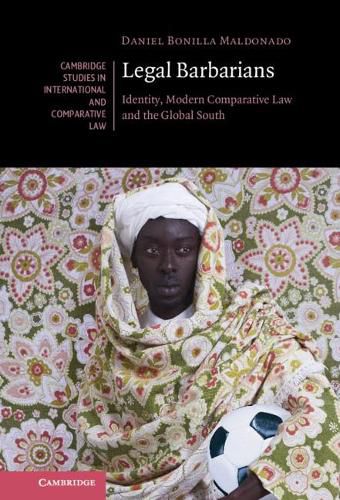Readings Newsletter
Become a Readings Member to make your shopping experience even easier.
Sign in or sign up for free!
You’re not far away from qualifying for FREE standard shipping within Australia
You’ve qualified for FREE standard shipping within Australia
The cart is loading…






In this novel and unorthodox historical analysis of modern comparative law, Daniel Bonilla Maldonado explores the connections between modern comparative law and the identity of the modern legal subject. Narratives created by modern comparative law shed light on the role played by law in the construction of modern individual and collective identities. This study first examines the relationship between identity, law, and narrative. Second, it explores the moments of emergence and transformation of this area of law: instrumental comparative studies, comparative legislative studies, and comparative law as an autonomous discipline. Finally, it analyzes the theoretical perspectives that question the narrative created by modern comparative law: Third World Approaches to International Law, postcolonial studies of law, and critical comparative law. For lawyers and legal scholars, this study brings a nuanced understanding of the connections between the theory of modern comparative law and contemporary practical legal and political issues.
$9.00 standard shipping within Australia
FREE standard shipping within Australia for orders over $100.00
Express & International shipping calculated at checkout
In this novel and unorthodox historical analysis of modern comparative law, Daniel Bonilla Maldonado explores the connections between modern comparative law and the identity of the modern legal subject. Narratives created by modern comparative law shed light on the role played by law in the construction of modern individual and collective identities. This study first examines the relationship between identity, law, and narrative. Second, it explores the moments of emergence and transformation of this area of law: instrumental comparative studies, comparative legislative studies, and comparative law as an autonomous discipline. Finally, it analyzes the theoretical perspectives that question the narrative created by modern comparative law: Third World Approaches to International Law, postcolonial studies of law, and critical comparative law. For lawyers and legal scholars, this study brings a nuanced understanding of the connections between the theory of modern comparative law and contemporary practical legal and political issues.